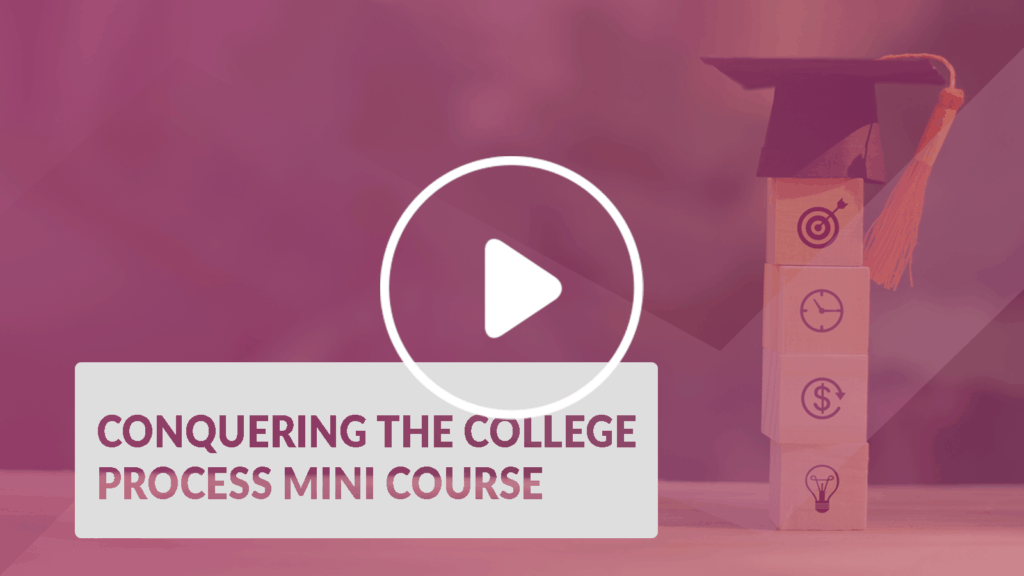Test Scores and Required Courses
Test Scores and Required Courses will be the last subjects we will discuss in this three-part series. These are also part of the college process plan and are not something that should not be left until the last minute.
Test Scores
Test Scores: when referring to test scores this means “standardized test scores” these include primarily: ACT (American College Testing) or SAT (Scholastic Aptitude Test or SAT reasoning test or SAT 1). The other test scores that can be included are SAT Subject tests (formerly Scholastic Achievement Test or SAT 2) and AP (Advanced Placement) tests. For a more detailed explanation of each test see my post Alphabet Soup.
Like it or Not
Standardized test scores are just what they imply. These are for the most part multiple choice tests given on a national and in some instances an international plane. The same test is given on the same day at the same time to students across the globe. The goal is to give all students the same standard test and see where they fall on a scale of 1-36 for ACT or 400-1600 for SAT. The higher the number the better the student did on the test. I personally am not a huge fan of standardized tests, I do however see how they are a necessary evil.
Why Testing is Necessary
When schools are trying to compare students from across the country, not all school grading systems are created equal. Therefore, the standardized test does what the admissions counselors and high schools cannot. The test levels the playing field by testing every student exactly the same. The theory is those with the best skills will score the highest and those with less developed skills will score lower and they will all be graded exactly the same. Note: It is important to note if you have a student with a learning disability such as dyslexia for example or has had a brain injury there are some special provisions that can be made on these tests. These have to be medically diagnosed and recorded by a doctor (i.e. you need proof), you can’t just call up and say your student has an issue. If you think you have a legitimate case, contact the test providers and ask for further instructions.
Big Opportunities Available
If your student does exceptionally well and you happen to be reading this early enough there are gifted and talented programs based off the ACT/SAT as young as the seventh grade. See the post what to do before high school. For the majority of students taking one of the tests their freshman or sophomore year to get a baseline is a good idea. First it puts them in a different environment, generally, with a proctor they don’t know, taking a test that is foreign to them. Best to get the bugs out early. If you are looking to have a national merit scholar than your student needs to be looking at the PSAT in October of their Sophomore year. They may take the test once in their Sophomore year for practice and then again as a Junior for a chance at becoming a National Merit Scholar. This is another one of those things that many people just don’t know. The National Merit Scholars are determined from the test takers Junior year of the PSAT given sometime in October. Not the SAT.
A Major Factor at Most Schools
A students test score on the ACT/SAT are one of the determining and differentiating factors when they apply for college. Currently, the national average score on the ACT is 21 and for SAT 1038, for comparison the median scores for accepted students at Stanford last year were 33 and 1500, respectively. I know that not everyone wants to attend an Ivy League or similar school but I am doing this so you can gauge the differentiation. In contrast, the average at my local state University is a 25 and 1270. The local community college has a 19 minimum ACT or 3.0 unweighted GPA. You need to know where the baselines are in order to make a sound plan. Most colleges have a minimum ACT/SAT score in order to apply unless they are test optional. There are exceptions to this rule as with everything but they are few and far between. You need to know what the minimums are for acceptance at any type of school to which you are trying to gain admittance. I have a number of parents say “oh they can just go to the community college”. Well if they have the minimum GPA or test score that’s true and only after they apply. Unfortunately, many don’t have the minimums and find themselves taking remedial classes before they are eligible. As I said there are many different paths that people take.
The Earlier You Start The Better
Testing does not need to take up a kid’s entire life, but depending on how they do on the initial test and where they are hoping to eventually go to school; they may need to invest a significant amount of study time. There are books, online courses, one on one tutoring and numerous other ways to prepare (which will be covered in depth in another post). What you need to know now is that it is an excellent idea for your student to take either the ACT/SAT as a freshman or sophomore to get a baseline of where they are compared to what they are going to need to gain admittance. I believe it needs to be taken several times their Junior year in conjunction with studying. There are varying opinions on how many times is the correct number of times to take the test. This debate is also covered in another post.
Yes the Time is Worth it!
I tell the students regularly that each point is worth the time it takes to raise it, for several reasons. The first and most obvious is the higher your score the more competitive you are for admissions. The second is that many scholarships are based on ACT/SAT scores or are heavily weighted on them and there are those you have to meet a minimum score to even apply for. The last and most often overlooked are the school programs that you can compete for or will become eligible for with a better score. Many of them come with extra money, benefits, or perks. The honors college is one of these. My son likened the honors colleges at many schools to having elite status at a hotel or on an airline. Strange as that may seem it was actually a really good analogy.
Keep Your Options Open
So as I am sure you are starting to see at this point there can be a lot to this. The possibilities are endless and run the gamut from community college to the number one University in the nation. What I am hoping you take away from this is that you can leave this to chance your senior year and hope you get the score you need to be competitive at whatever your choice is or at the least a high enough score to be allowed admissions. I do however think this leaves a lot to chance and will certainly take away many other possibilities. The best plan is to start approaching the tests methodically and taking them fairly regularly and not have to wonder what your options will be.
Required Courses
Required Courses: Every school will have required courses. That will be a list of classes that you will have to have taken in order to be considered for admission. The required classes for admittance are easily found on most college websites under freshman admissions. It will be listed under something like minimum high school performance or high school requirements or required high school courses, you get the idea. Usually, a quick search in the search bar will give you your answer.
The Classes You Will Need For College
What is the usual list? Most colleges will require 4 years of English, 3 years of Math preferably 4, 3 years of Science preferably 4, 3 years of History, 2 years of Art or Music and possibly a computer class and two years of Foreign language. This is the status quo it does not mean that these are the only classes that are required. Colleges differ somewhat so always check and make sure you know what the pre-requisites are for a specific school. In addition, if a student wants to major in STEM (Science, Technology, Engineering, Math) there is often pre-requisites for Physics and Math classes completed at a certain level.
The Building Block Theory
This is one of those situations best planned out freshman year. Why is it so important you ask? Well simply put Math, Science, English and in most instances Art, Music and Language are all classes that build one upon the other. If students miss a year or get behind it is really difficult to get caught back up. They don’t want to figure out Senior year that they are missing required courses that they have no more time to get done.
Make a Plan
Plan: Make sure Freshman year that the student is on a “college track”. This means that they areon “track” to finish all necessary classes to be eligible to apply to college. For example, make sure if they need to finish Calculus senior year that they have the appropriate math classes the three years previous to make this possible. Unfortunately, with Sports, Band, Music, Ag and other such classes sometimes scheduling doesn’t work and students have to figure out how they are going to compensate for this from one year to the next. Do Not depend on the high school to make sure this is happening. Take an active part and know what classes need to be on the student’s schedule. It is advisable to make a schedule freshman year for the next four years. Take into account elective activities that will take up class time and plan for them. The schedule can change but be aware of what the student will need to do to compensate for moving a foundation class.
The Bottom Line!!
These three things may seem a bit overwhelming at first but the main thing to take away from this post is to
If you missed the first two corresponding posts to this three-part series they can be found here; first post “first things first” and second post “first things second.”
Until Next Time
Get With The Program,


